MuleSoft is thrilled to announce that our new release of Anypoint Studio 7.12 is now available. Our goal with every new Anypoint Studio release is to deliver incremental value to our MuleSoft developers, and this release includes six enhancements that will help increase developer productivity and make it easier and faster for Mule developers to build APIs and integrations. We support multi-factor authentication, adding the possibility to comment flows and processors in the graphical mode, publishing to Anypoint Exchange with more metadata, and more improvements.
This is the first Anypoint Studio release that includes the needed remediations to deal with the Log4j security incident out of the box. We strongly recommend all our MuleSoft developers upgrade to this version.
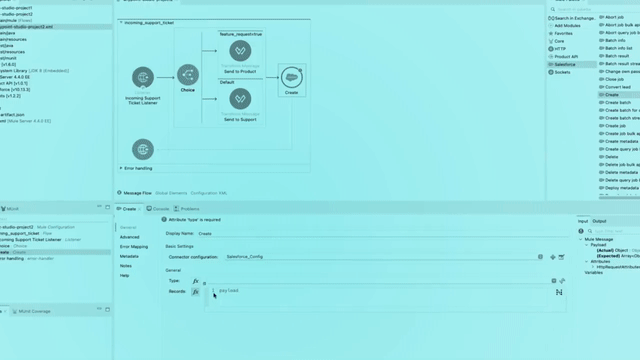
Multi-factor authentication support
Since Studio 7.4, we’ve had our built-in Chromium Web Browser. In this release, we are upgrading the version to support multi-factor authentication (MFA).
If you had your Anypoint Platform account configured to use MFA (your administrator may have enabled MFA for all), up to now you were required to follow some manual extra steps in order to log in from Studio. In Studio 7.12, you will now have a seamless and built-in login experience with MFA without doing any extra work.
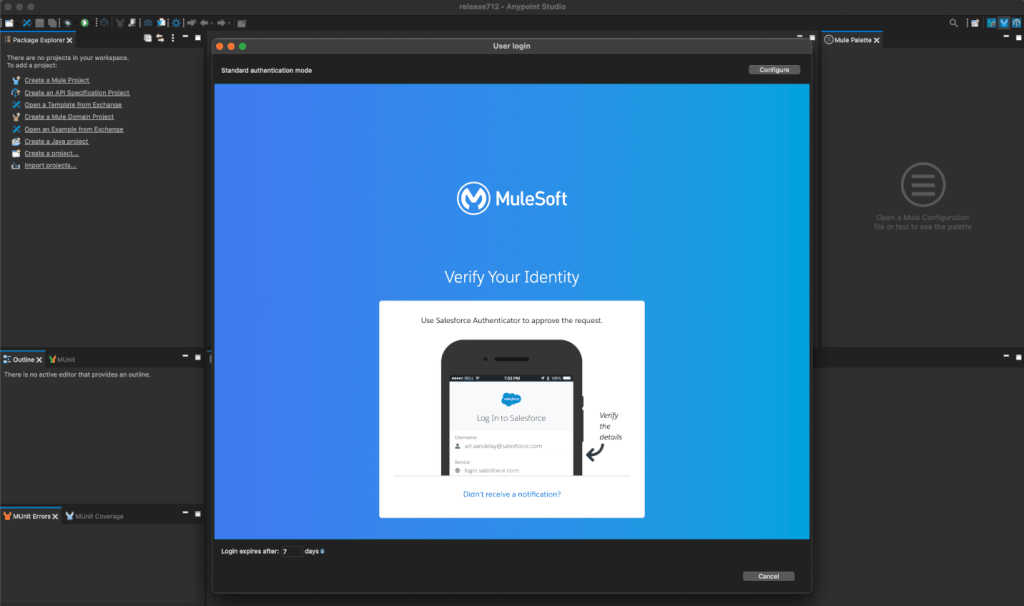
Comment flows
The all-time most voted idea from the ideas portal has now launched in Studio! Now, you’ll be able to comment processors or flows directly from the message flow editor.

Do you have a processor that’s not working correctly? Do you want to try something out by commenting out a part of the flow (or even an entire flow)? You just have to right-click and click on the new “Toggle Comment” option.
This will generate an XML comment of what was selected. This way, when you run your app, the commented code will be disregarded by the Mule Runtime. You’ll also be able to edit your comment through the Mule Properties View or the code-first editor.
Exchange metadata publication
When publishing a Mule Application as an Example or Template, you will now be able to add tags and categories too, directly from Studio in one easy step. This will be additional metadata assigned to the published asset in Anypoint Exchange enhancing the discovery of these useful reusable components.
Just go to Anypoint Platform, then select “Publish To Exchange” in the Mule Project contextual menu. You’ll see the traditional “Publish to Exchange” wizard, but instead of finishing, we’ve added a second page to fill the metadata.
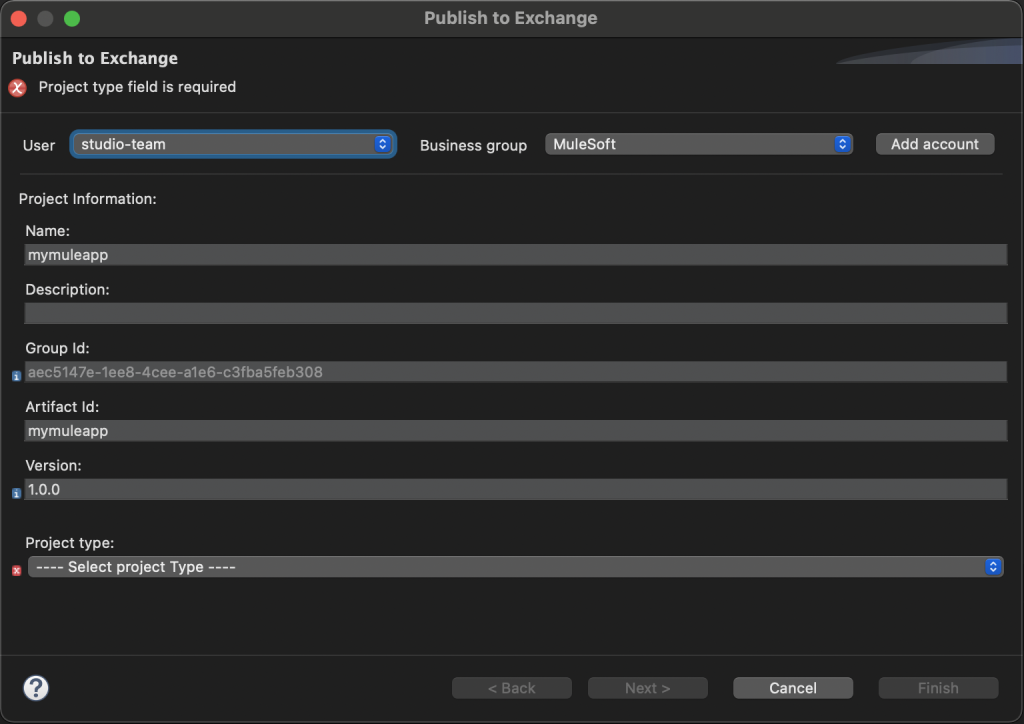
After filling in the appropriate fields and clicking “Next,” you’ll see our new wizard page:
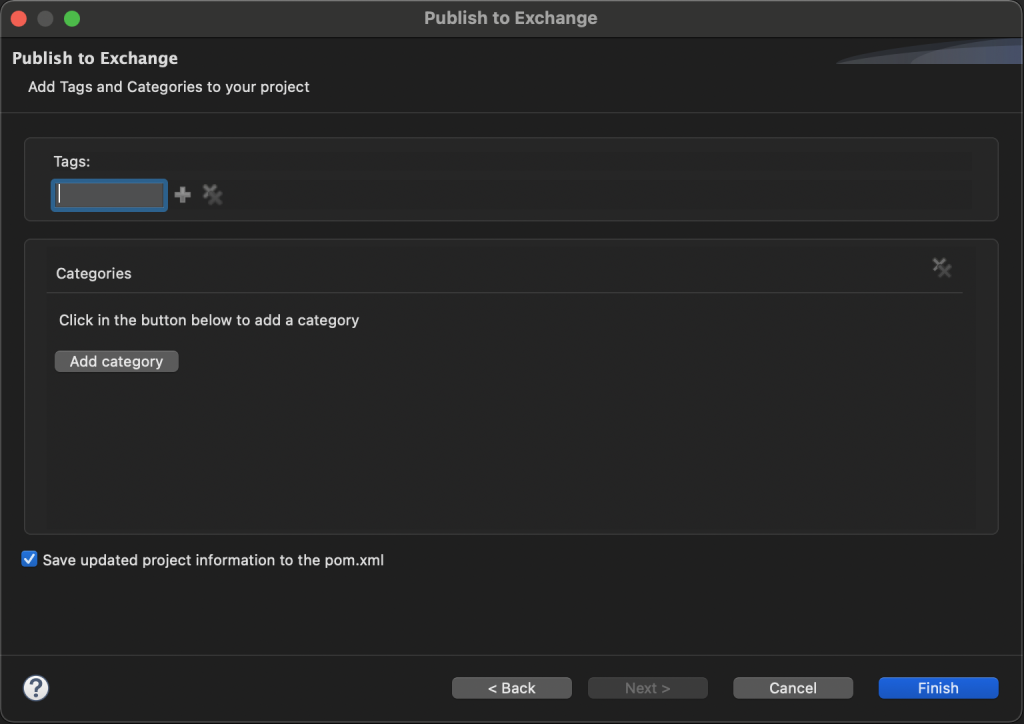
Here, you’ll be able to add all the tags you want. If you already have configured tags in Exchange, they will be loaded automatically.
Once you publish from Studio, the metadata will be added in your pom.xml. This means that if you add tags from Exchange after this, you will not see that reflected in Studio.
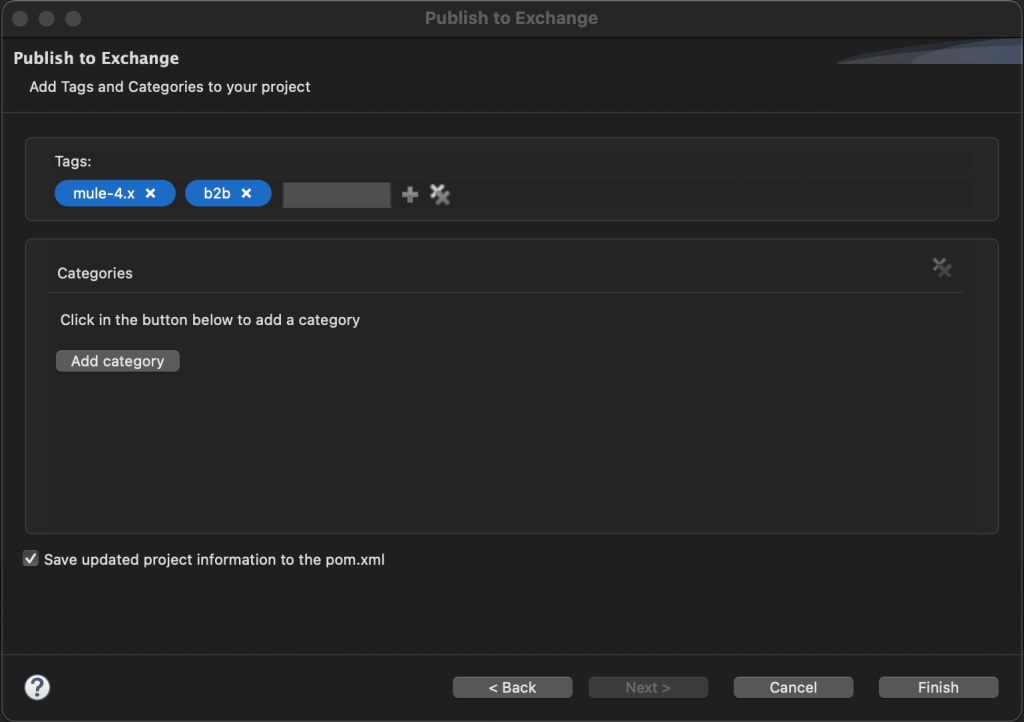
For the categories section, you will see the values that are configured for your organization. If you don’t see any categories (or need one that is not there) follow this article on how to manage categories.
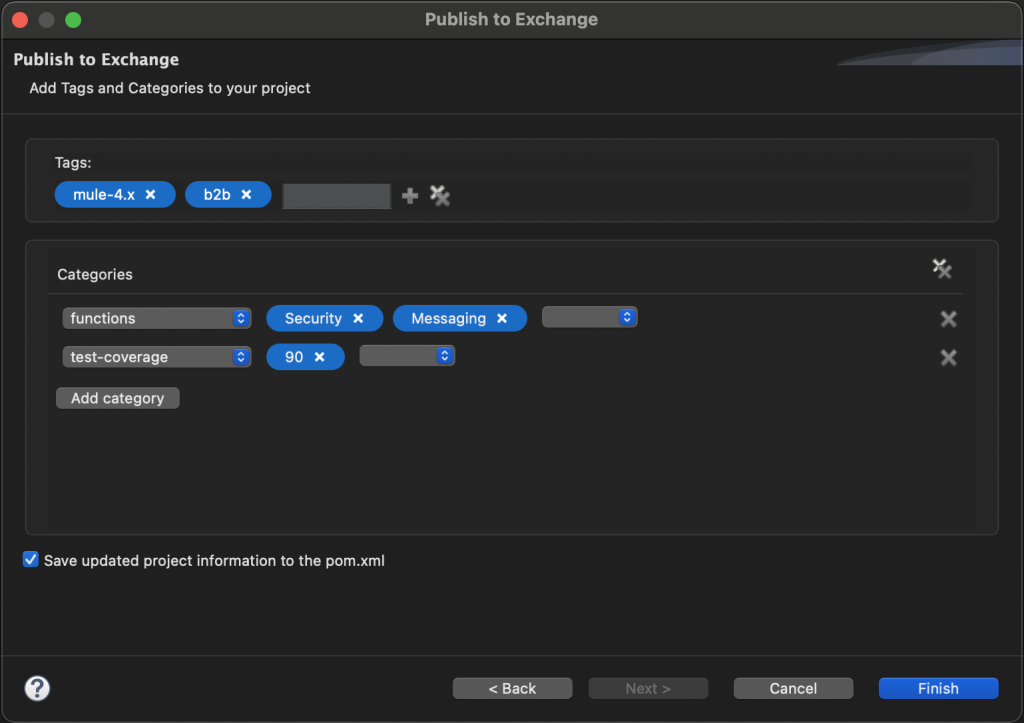
Once you have your categories selected, click “Finish” to publish your Exchange metadata.
Import from Design Center improvement
When creating a Mule Project, you can import a RAML API specification from Design Center to create a local copy of that API in your project. Additionally, you can choose what Design Center branch you want to import from.
What’s changed in this new release? We’ve improved the searching and filtering functionality and are loading your APIs more quickly. Before this Studio 7.12 release, only 15 APIs were loaded at a time, which took more time and effort to process. In addition to faster API search, the search filter will now search through all your APIs at once. Before, it only searched in the few that were loaded.
Metadata Assistant enhancements
On Studio 7.10, we launched the metadata assistant. To learn more, read about the the 7.10 release announcement.
Based on customer usage and feedback, we made some improvements in the overall performance around the assistant and metadata resolution. In our latest release, we are rolling out improved UI responsiveness thanks to enhancements made to reduce background processing. For example, when you use a Flow Reference, metadata will now propagate asynchronously, significantly improving the usability and responsiveness of Studio.
Notifications improvements
In Studio 7.10, we also delivered the notification center to notify the user of new module and product updates. Before 7.12, users were notified only on Studio start-up if there were new versions available. Now, after a certain interval of time, Studio will check for new connector versions again. On the preferences page, you can customize the time between these checks.
Additionally, the table of updates now allows for filtering and sorting. With this update, you can sort multiple module updates and projects easily.
Get started with Anypoint Studio 7.12
To get started with Anypoint Studio 7.12, download it today! If you’re new to MuleSoft, sign up for a free trial of Anypoint Platform to get started building integrations. Don’t forget to check out our updated demo video of Anypoint Studio to learn about the latest features from the past few releases.









